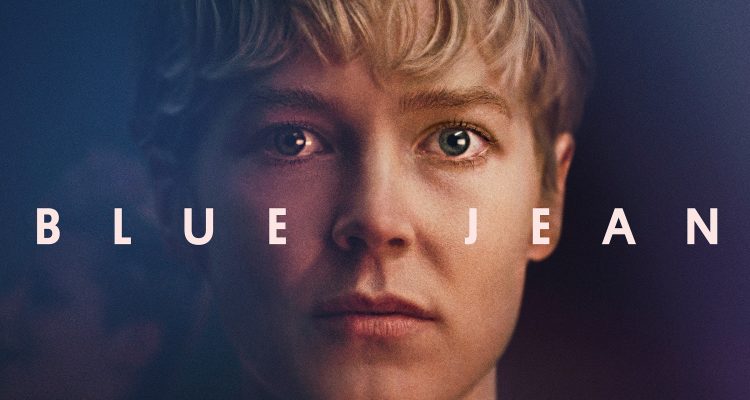Director Georgia Oakley transports us back to 1988 and the unfortunatley repressive nature of life in the U.K. (which cannot be overstated how bleak the time was). Margaret Thatcher’s Conservative government is preparing to pass a law stigmatizing gay and lesbian citizens, further ostracizing them from the normal life of “family-oriented” heterosexuals.
This puts Jean (Rosie McEwen), a very closeted P.E. (or gym) teacher, in a very difficult position. The idea of any homosexual gym teacher being an issue is laughable now, but it would have career-ending ramifications for the character of Jean in 1988 Newcastle (England’s industrial North East).
Jean tries to fit in the “straight world” the best that she can, but she’s found her true family in the underground queer world. The bar Jean frequents feels very Fight Club (minus the hostility and anarchy) and you can feel Jean feeling more at ease among her people… and yet, still not fully at peace with herself.
Jean’s girlfriend Viv (Kerrie Hayes) has fully embraced her queer self, and it’s Jean inability to do the same that prevents them from having a healthy relationship. Viv has cast away “normal society” as much as they cast her out, choosing a bold haircut and very counter culture wardrobe for her day to day life.
This choice of self expression limits Viv’s ability to make a living, along with many of the other members of her community. Later in the film we learn that many in the community rally together and share a flat in an attempt to survive in a society that’s actively trying to eliminate them.
Jean loves her job and lives in fear that one day she will be outed as a lesbian public educator. Working with children, Jean knows she would be vilified even more than if the truth came out.
Jean maintains strict rules, forbidding Viv to call her at school as it could raise too many questions. Jean also wants Viv to hid when unexpected company arrives at her apartment. It’s easy to see why Viv is frustrated by Jean, and McEwen’s performance has you siding with every choice she makes (sometimes unwillingly, she’s that good).
As Jean, McEwen soars to incredible heights in even the most mundane moments of her daily as a teacher… a colleague expresses bigotry toward her brethren and she’s expect to flex a smile in response. This is easily one of my favorite performances of the year and this is a transformative performance, McEwen adopted a new accent, changed her hair. and adopted a different physicality.
The thought-provoking and often emotional beats in the film are brilliantly guided by director Georgia Oakley. The wisdom in the young director not to lean into the emotion allows the piece to speak truth in every frame… creating one of the most authentic cinematic experiences in recent memory.
Oakley chose to shoot the film on 16mm, giving it the grain and texture that is another character in the film. Recreating the messaging from Thatcher’s government that targeted the queer community is done accurately and often, using radio ads and news segments to constantly hammer Jean with the reminder that her existence is seen as ungodly (and illegal if certain people had their way).
Jean’s treatment by colleagues and even her family members showcase casual bigotry and homophobia that was pervasive at the time. Jean is faced with a new challenge with the arrival of a student named Lois (Lucy Halliday), who is clearly not like the others. In fact, this young lady is quite possibly further along in her queer journey than Jean, attending the lesbian bar that Jean frequents with Viv.
Jean is faced with a sensitive conflict that I won’t spoil between Lois and another classmate, and it’s Jean’s struggle to make the right decision that becomes a powerful remind of how social pressure can influence one’s morality.
In the concluding moments of the film, Jean is allowed to make the first real steps toward self-acceptance and it feels very earned… this is a character we’ve come to love and we can all relate to, in one fashion or another. Oakley is exceedingly gifted as a storyteller and visual artist, delivering a powerful, grounded, and awards-worthy film akin to a British Moonlight.
Letter Grade: A+


